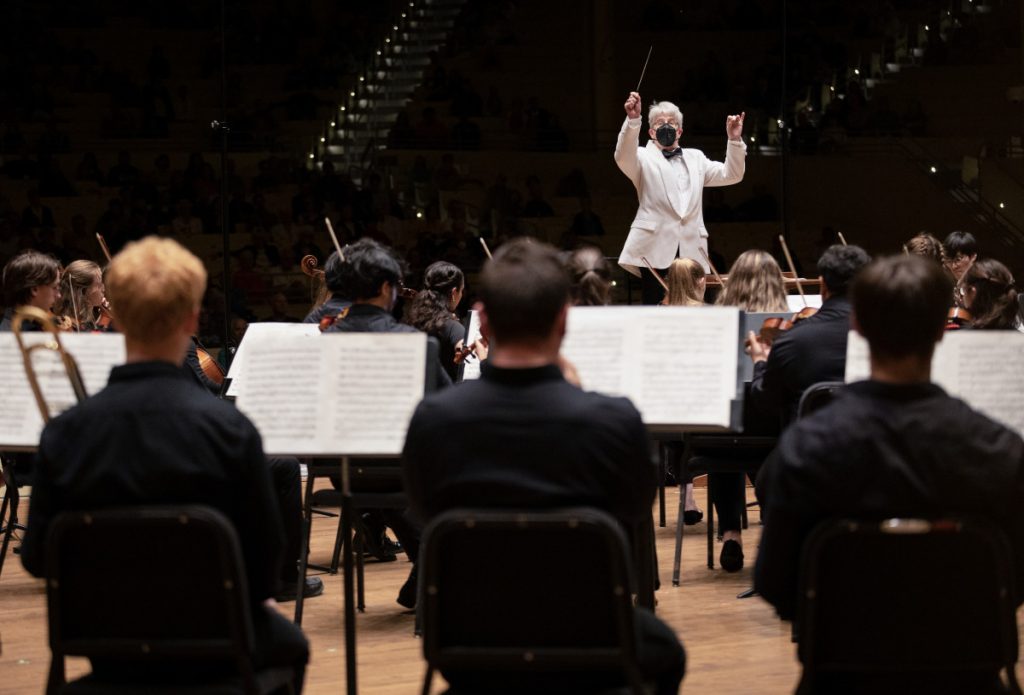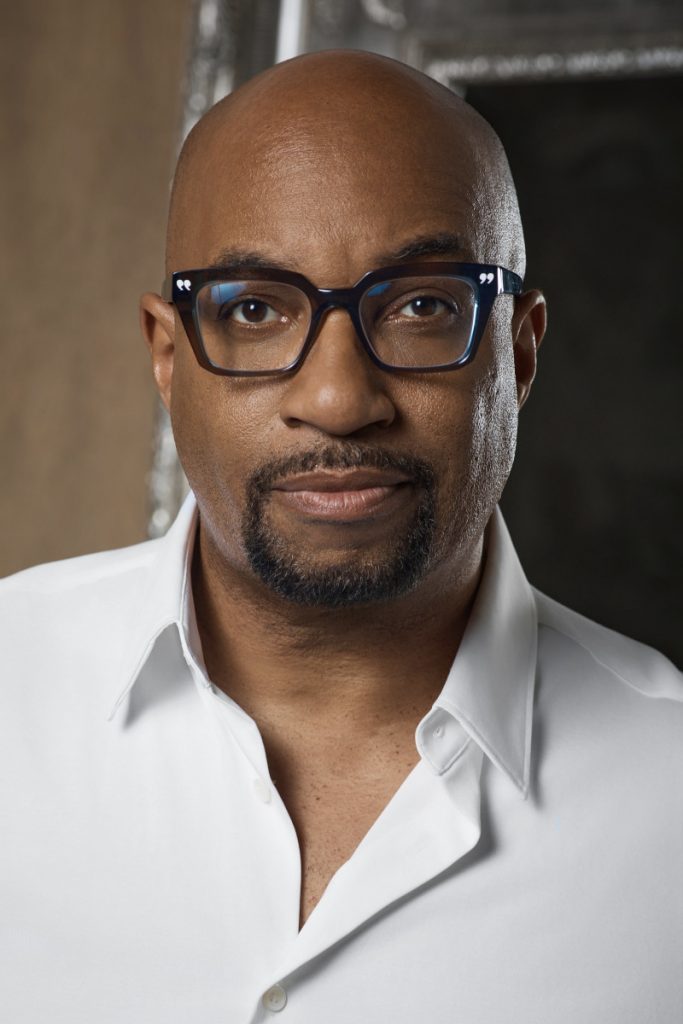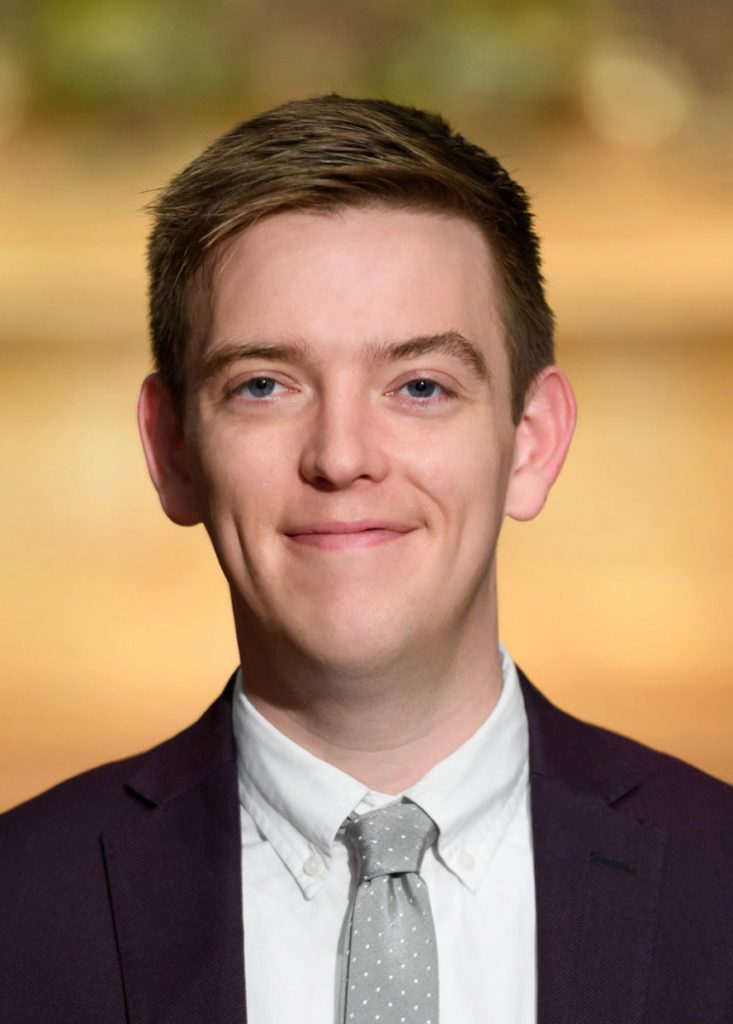
Artistic Director Timothy Muffitt conducts the Music School Festival Orchestra in Mahler’s Symphony No. 5 during their final concert of the season Aug. 7, 2023, in the Amphitheater. The MSFO opens its 2024 season, with Muffitt, at 8:15 p.m. tonight in the Amp.


As all of Chautauqua celebrates the Institution’s sesquicentennial, the student musicians of the Music School Festival Orchestra will commemorate the occasion — and their season debut — with pieces that touch the deepest parts of our humanity.
The MSFO, under the baton of School of Music Artistic Director Timothy Muffitt, will perform for the first time in 2024 at 8:15 p.m. tonight in the Amphitheater, with some special guests on tap for the evening.
The program will consist of Roger Briggs’ “Gathering Together,” Haydn’s Symphony No. 95, and Edward Elgar’s “Enigma Variations.” Sam Hollister, who serves as the 2024 David Effron Conducting Fellow, will be taking the stand for Symphony No. 95; Joshua Stafford, the Institution’s Jared Jacobsen Chair for the Organist and director of sacred Music, will join for “Variations.”
Briggs is a relatively contemporary composer, born in 1952. Reviewers associate his music with words like “delicate, haunting, brilliant and expansive.” His piece “Gathering Together” is based on a poem by Patricia Goedicke that will be read aloud by Michael I. Rudell Artistic Director and Inaugural Writer-in-Residence Kwame Alexander. The poem, Muffitt said, is a celebration of the Institution’s 150th anniversary, and of Chautauqua’s coming together once more.
“The poem really sets up music for the listener to maximize their connection (to the music). We’re all about the cross-pollination here, and so it’s a wonderful opportunity for that. … I hope it sets the tone for the summer — that human interaction and engagement, as friends or as a community, is just one of the joys of being on this earth,” Muffitt said. “I feel like this piece of music really captures that. It’s joyous, it’s energetic, but it’s also heartbreakingly beautiful.”
The MSFO students range in age from 18 to 28; the young musicians receive scholarships for their summer of vigorous training. This year, 82 students, out of more than 500 applications, were selected for the cohort. Working with musicians on the cusp of their career is a particular passion for Muffitt.
“The process of rehearsing over the course of the whole week is as big for me as the excitement of the performance itself,” he said. “These works are relatively new for the young musicians of the MSFO and so for them, there’s some discovery involved — it’s exciting. The possibilities are almost limitless with an orchestra with their talent level, their devotion to their work, and the perspective they bring to the experience. I just love every minute of rehearsal watching the group grow and come together.”
Even as music adds emotional dimension to life, Muffit said, it also has practical takeaways for young people developing the skills needed to be performers. There’s the importance of learning what it means to work hard, what it means to work in a team toward a very high goal, and the discipline of working every day, even when it’s tedious or difficult.
Outside of conducting, Muffitt champions new music from composers of broadly diverse backgrounds and those who have been forgotten along the way, as seen through the composition of the summer’s program. Notable composers who have fallen through the cracks, who didn’t have the same opportunities that others did, Muffitt said, include Florence Price, William Levi Dawson and Ethel Mary Smyth.
“There have been a lot of composers that have had a hard time breaking through that (solid, established standard),” he said. “I think it’s important, for starters, to create a nurturing environment for living composers today. We need to create an environment where composers today are creating music of our time that will be the legacy our time leaves in musical history.”
Music is a “vehicle for human connection, interaction and growth,” Muffitt said; this is why he is an advocate for community-based arts education and enrichment. His hope for the audience, as they experience the work of both the composers and the young musicians, is that they walk away inspired, moved, and refreshed.
“Arts education — community or otherwise — enlightens us as a people and as a society,” Muffitt said. “It brings us an ability to have a more open mind, to reconsider possibilities, and see the world freshly on a day-to-day basis.”




